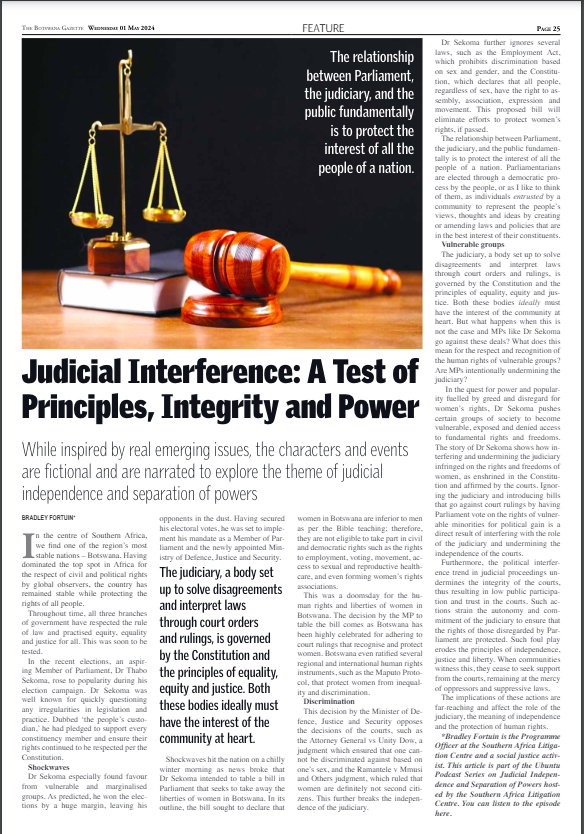SALC: In the centre of Southern Africa, we find one of the region’s most stable nations – Botswana. Having dominated the top spot in Africa for the respect of civil and political rights by global observers, the country has remained stable while protecting the rights of all people. Throughout time, all three branches of government have respected the rule of law and practised equity, equality and justice for all. This was soon to be tested.
In the recent elections, an aspiring Member of Parliament, Dr Thabo Sekoma, rose to popularity during his election campaign. Dr Sekoma was well known for quickly questioning any irregularities in legislation and practice. Dubbed ‘the people’s custodian,’ he had pledged to support every constituency member and ensure their rights continued to be respected per the Constitution.
Shockwaves
Dr Sekoma especially found favour from vulnerable and marginalised groups. As predicted, he won the elections by a huge margin, leaving his opponents in the dust. Having secured his electoral votes, he was set to implement his mandate as a Member of Parliament and the newly appointed Ministry of Defence, Justice and Security.
The judiciary, a body setup to solve disagreements and interpret laws through court orders and rulings, is governed by the Constitution and the principles of equality, equity and justice. Both these bodies ideally must have the interest of the community at heart.
Shockwaves hit the nation on a chilly winter morning as news broke that Dr Sekoma intended to table a bill in Parliament that seeks to take away the liberties of women in Botswana. In its outline, the bill sought to declare that women in Botswana are inferior to men as per the Bible teaching; therefore, they are not eligible to take part in civil and democratic rights such as the rights to employment, voting, movement, access to sexual and reproductive healthcare, and even forming women’s rights associations. This was a doomsday for the human rights and liberties of women in Botswana. The decision by the MP to table the bill comes as Botswana has been highly celebrated for adhering to court rulings that recognise and protect women. Botswana even ratified several regional and international human rights instruments, such as the Maputo Protocol, that protect women from inequality and discrimination.
Read full article: Judicial Interference: A Test of Principles, Integrity and Power


